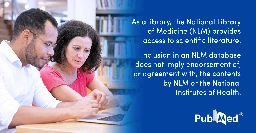A pilot study shows a single dose of psilocybin can significantly improve symptoms of SSRI-resistant body dysmorphic disorder for at least 12 weeks
A pilot study shows a single dose of psilocybin can significantly improve symptoms of SSRI-resistant body dysmorphic disorder for at least 12 weeks
This study provides promising preliminary support for psilocybin as a treatment of BDD, warranting future controlled studies.

Abstract
Objective: Body dysmorphic disorder (BDD) is an often-severe condition in which individuals are preoccupied by misperceptions of their appearance as defective or ugly. Only serotonin reuptake inhibitors and cognitive-behavioral therapy have been demonstrated efficacious in randomized controlled trials. Psilocybin is a psychedelic drug with growing evidence for safety and efficacy in treatment of depression. This study aimed to pilot test the feasibility, tolerability, safety, and efficacy of psilocybin treatment of adults with BDD.
Methods: In this open-label trial, 12 adults (8 women, 4 men) with moderate-to-severe non-delusional BDD that had been unresponsive to at least one serotonin reuptake inhibitor trial received a single oral dose of psilocybin 25 mg. There was no control group. Psychological support was provided before, during, and after the dosing session. The primary outcome measure for efficacy was the Yale-Brown Obsessive Compulsive Disorder Scale Modified for BDD (BDD-YBOCS) score during 12 weeks of assessments after dosing.
Results: All participants completed dosing and all follow-up assessments. BDD-YBOCS scores decreased significantly over 12 weeks of follow-up (p < .001) with a large effect size (partial eta squared = 0.54), and significant changes from baseline were present at week 1 and persisted through week 12. Secondary efficacy measures of BDD symptoms, conviction of belief, negative affect, and disability also improved significantly, and no serious adverse events occurred. At week 12, seven participants (58%) were rated responders, based on ≥30% decrease in BDD-YBOCS.
Conclusion: This study provides promising preliminary support for psilocybin as a treatment of BDD, warranting future controlled studies.